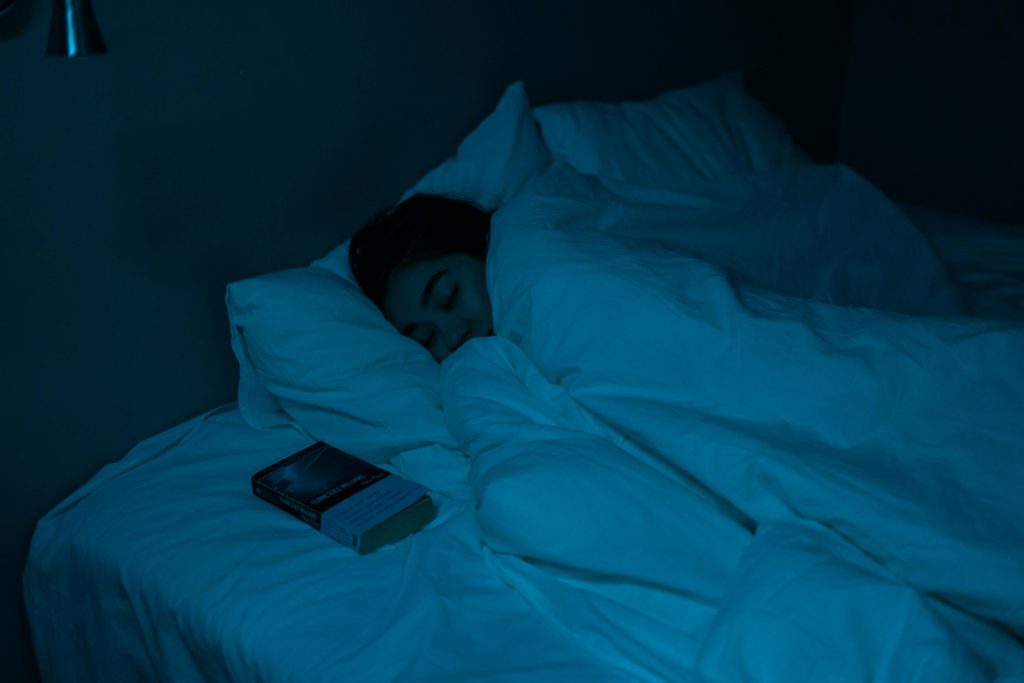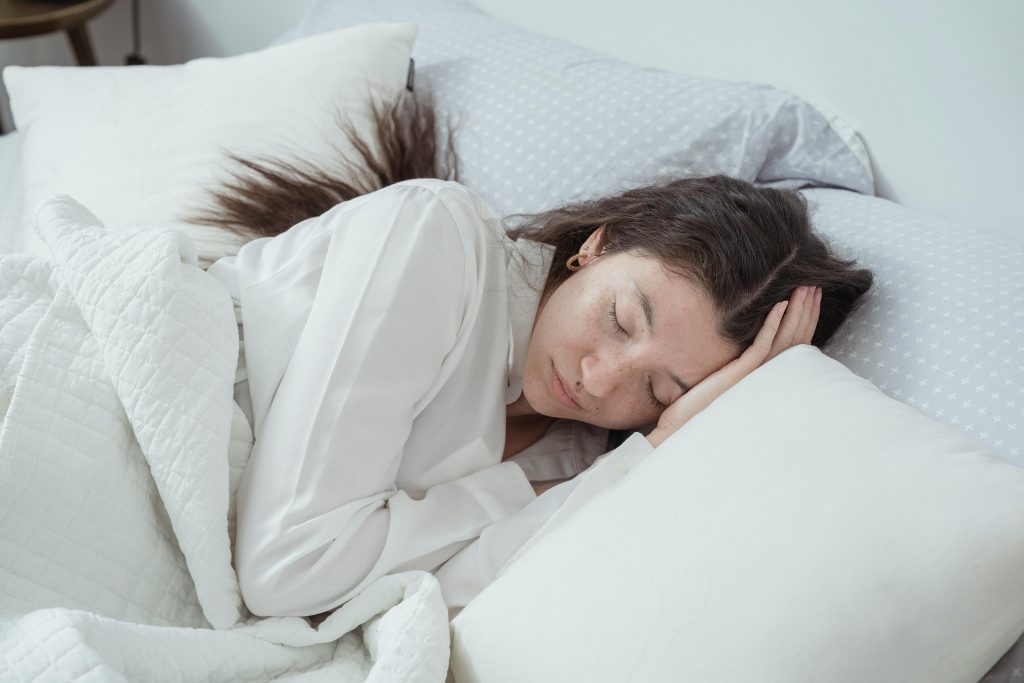
Ever had one of those nights where you’re staring at the ceiling, waiting for sleep to magically arrive? You’re not alone. So many of us struggle with sleep, whether it’s falling asleep, staying asleep, or waking up feeling like we barely slept at all.
The thing is, good sleep doesn’t just happen your body needs the right signals to know it’s time to relax. And the easiest way to give it those signals is by creating simple, consistent nighttime habits.
Think of it like this: your night routine is a gentle “off switch” for your brain. Here are some easy and natural habits that can help you sleep better, without fancy gadgets or sleeping pills.
1. Keep a Regular Sleep Schedule
Your body loves routine. Going to bed and waking up at the same time every day—yes, even on weekends—helps regulate your internal clock.
It doesn’t have to be super early, just consistent. If your body knows when it’s bedtime, it’s easier to fall asleep and wake up without feeling like a zombie.
Pro tip:
Set a wind-down reminder about an hour before bed. It’s like a little nudge to start relaxing.
2. Make a Chill Bedtime Routine
Remember how kids fall asleep faster after a bedtime story or a warm bath? Adults aren’t that different. A calm, predictable routine helps signal your brain: “Hey, it’s time to sleep.”
Some ideas:
- Take a warm shower or bath
- Do light stretches or gentle yoga
- Listen to soft music or white noise
- Read a physical book (not your phone)
Do this regularly, and your body will start to associate these little rituals with sleep.
3. Put Your Screens to Bed, Too
Our phones, tablets, and TVs mess with melatonin, the hormone that makes you sleepy. That blue light is basically telling your brain, “Nope, it’s still daytime!”
Try this instead:
- Turn off screens 30–60 minutes before bed
- Use night mode or blue light filters in the evening
- Leave your phone charging outside the bedroom if you can
Your brain will thank you in the morning.
4. Watch What (and When) You Eat and Drink
A late-night burger or a double latte is basically a recipe for tossing and turning. Heavy meals can cause discomfort, caffeine lingers for hours, and alcohol might knock you out fast but wrecks deep sleep.
If you’re hungry late at night, go for light, sleep-friendly snacks like:
- A banana with nut butter
- Greek yogurt with berries
- Whole grain toast with avocado
5. Turn Your Bedroom Into a Sleep Haven
Your room should whisper “sleep mode” the second you walk in. A few tweaks can make it extra cozy and sleep-friendly:
- Cool and comfy temperature (around 60–67°F / 16–19°C)
- Blackout curtains or an eye mask to block light
- White noise or earplugs if the world outside is noisy
- Use your bed only for sleep and relaxing, not emails or Netflix binges
The more your brain associates your bed with rest, the faster you’ll fall asleep.
6. Do a Quick Mind-Reset
Ever get into bed and suddenly your brain starts replaying everything you did this week? Stress and overthinking are classic sleep killers.
Try winding down your mind with:
- Deep breathing exercises (inhale 4 sec, hold 4, exhale 6)
- Short meditation or guided sleep audio
- Journaling your thoughts or tomorrow’s to-do list
Even 5 minutes of this can help switch your brain from “alert” to “relax.”
7. Keep Naps Short and Sweet
Naps are great until they steal your nighttime sleep. If you need one, keep it:
- 20–30 minutes max
- Before 3 p.m.
This gives your body an energy boost without confusing your sleep cycle.
8. Dim the Lights and Set the Mood
Your body is wired to sleep when it’s dark. Bright lights at night tell your brain to stay awake.
In the evening:
- Use warm, dim lamps instead of overhead lighting
- Avoid harsh white or blue lights
- Let your space feel like sunset vibes, not midday office vibes
Final Thoughts
Getting better sleep isn’t about perfection it’s about small, consistent habits that make bedtime more relaxing. Start with simple changes, like turning off your phone earlier, taking a warm shower, and dimming the lights to signal your body that it’s time to rest. When you repeat these cues consistently, your body naturally learns to power down. Soon, falling asleep will feel effortless, and waking up will feel well, almost human.




